3201 - Controlled Substance Abuse Testing and Treatment Program
Category
Medical Screening
Audience List
- Administrative Chiefs
- Agency Secretaries
- Agency Undersecretaries
- CEAs, Managers, Supervisors
- Chief Deputy Directors
- Chiefs of Administration
- Department Deputy Directors
- Department Directors
- Employee Relations Officers
- Human Resources Chiefs
- Human Resources Liaisons
- Human Resources Staff
- Labor Relations Officers
- Labor Representatives
- Personnel Officers
Synopsis
It is prohibited for state employees to work while under the influence of controlled substances. State employees who perform sensitive duties or operate commercial vehicles, or candidates for such positions, may be subject to drug and alcohol testing pursuant to federal and state regulations. State departments may enter into an agreement to use CalHR’s Controlled Substance Abuse Testing and Treatment (CSATT) Program.
Departments participating in the CSATT Program must adhere to procedures outlined in this policy.
Introduction
Pursuant to Executive Order D-58-86, Government Code sections 18502, 19261, 19815.4, 19820, and the California Code of Regulations (C.C.R.) sections 213.0-213.6 and 599.960-599.966 state agencies are responsible for maintaining a drug free workplace. No state employee on duty, or on standby for duty, shall:
1. Use, possess, or be under the influence of illegal or unauthorized drugs, or other mind-altering substances.
2. Use, possess, or be under the influence of alcohol to any extent that impedes an employee's ability to perform his or her duties safely and effectively.
This policy outlines CSATT’s program operations intended to support state agencies to achieve a drugfree workplace while protecting the privacy of state employees. Memoranda of Understanding (MOU) provisions may also be controlling. Refer to “Authorities” below for detailed information.
Statement
The CSATT Program provides states agencies access to drug and alcohol testing services in compliance with state and federal regulations for pre-employment, reasonable suspicion, and random testing requirements. For employees who test positive, treatment referral services are also available.
Application
The CSATT Program administers drug and alcohol testing services for the following:
- State Pre-employment
- Federal Department of Transportation (DOT) Random Selection
- U.S. Coast Guard (USCG)
- Federal Railroad Administration (FRA)
- State Random for Bargaining Unit 6 (BU06) and Excluded and Exempt (E&E) Peace Officers
- State Reasonable Suspicion
To comply with federal and state requirements, CalHR provides testing and treatment services through two master agreements with the vendors listed below:
1. Comprehensive Drug Testing services:
- Urine and breath alcohol testing
- Oral fluid testing for active THC metabolites
- Collection sites throughout California during normal hours, after hours, and holidays
- Emergency testing
- Mobile services
- Laboratory testing
- Medical Review Officer services
- Electronic test scheduling and results reporting
- State Random testing
- State Reasonable Suspicion testing
- State Pre-employment testing
- Federally regulated employees (FMCSA, USCG, and FRA)
- Electronic billing, invoices, and reporting
2. SAP Solutions, LLC.:
- Employee evaluations to determine substance abuse treatment requirements
- Substance Abuse Professional (SAP) reporting to employers on the recommended course of action
- Evaluation and monitoring of employees during substance abuse treatment
- Recommendation on whether the employee can return to work
Departmental lnteragency Agreements to Participate in the CSATT Program
An interagency agreement (IA) between CSATT and the participating department must be completed to obtain services. Each department will be billed for services as utilized, to include an administrative fee to cover program operation costs. CalHR’s Contracts Administration Unit will provide an IA template annually, or as needed, to departments seeking services.
Testing Services
CalHR provides testing pools for the purpose of efficiently managing federal and state requirements. Benefits include larger groups of employees for random testing requirements (also known as a consortium), reducing the likelihood of repeat selections and overall costs for participating departments.
Employees Subject to Federal DOT Regulations
Federal regulations require employers to perform random drug and alcohol tests on employees operating vehicles with a commercial driver’s license.
Employees Subject to State Testing Requirements
Employees in sensitive classifications and positions are subject to state testing, which includes peace officers as defined by the Penal Code sections 830.2(d) and 830.5, and other positions, as defined.
Sensitive Position Requests
If a department believes a classification or position meets the definition of "sensitive," the department must submit a sensitive position request (CalHR Form 163) to CSATT for approval. If approved, the position will be included for testing, pursuant to C.C.R., sections 599.960-599.966.
Reasonable Suspicion Training for Supervisors
CSATT provides reasonable suspicion training for supervisors, and other designated employees, on how to identify an employee who is under the influence of controlled substances. All training complies with federal and state regulations.
Authorities
- Bargaining Contracts - MOUs
- Commercial Driver's License Drug and Alcohol Clearinghouse
- Drug and Alcohol Testing Regulations, Title 49, Part 40
- Government Code section 19815.4
- Government Code section 19820 - Claims for Reimbursement
- Section 213.0-213.6
- Section 599.960-599.966
- USCG Regulation, Title 49, Parts 4, 5, and 16
- Vehicle Code, Section 34501
- Vehicle Code, Section 34520
Resources
FAQs
- Federal Clearinghouse FAQs: FMCSA Clearinghouse FAQs
Forms
- CalHR Form 163: Sensitive Position Request: Sensitive Position Request
Web Pages
- Employee Assistance Program: Employee Assistance Program
- FMCSA Clearinghouse: FMCSA Drug and Alcohol Clearinghouse
Authorized By
Michele Villados
Chief
Medical and Psychological Screening Division
Contact Person
Kathryn Ricoli
Staff Services Analyst
, Medical and Psychological Screening Division
Phone: 916-324-9374
Fax: 916-322-3769
Email: Substanceabusetesting@calhr.ca.gov
Superseded Policies
Not Applicable.History
Please note that some PDF Forms may not be opened directly in your browser. These PDF forms may be downloaded and saved to your computer to be opened with Adobe Reader.
